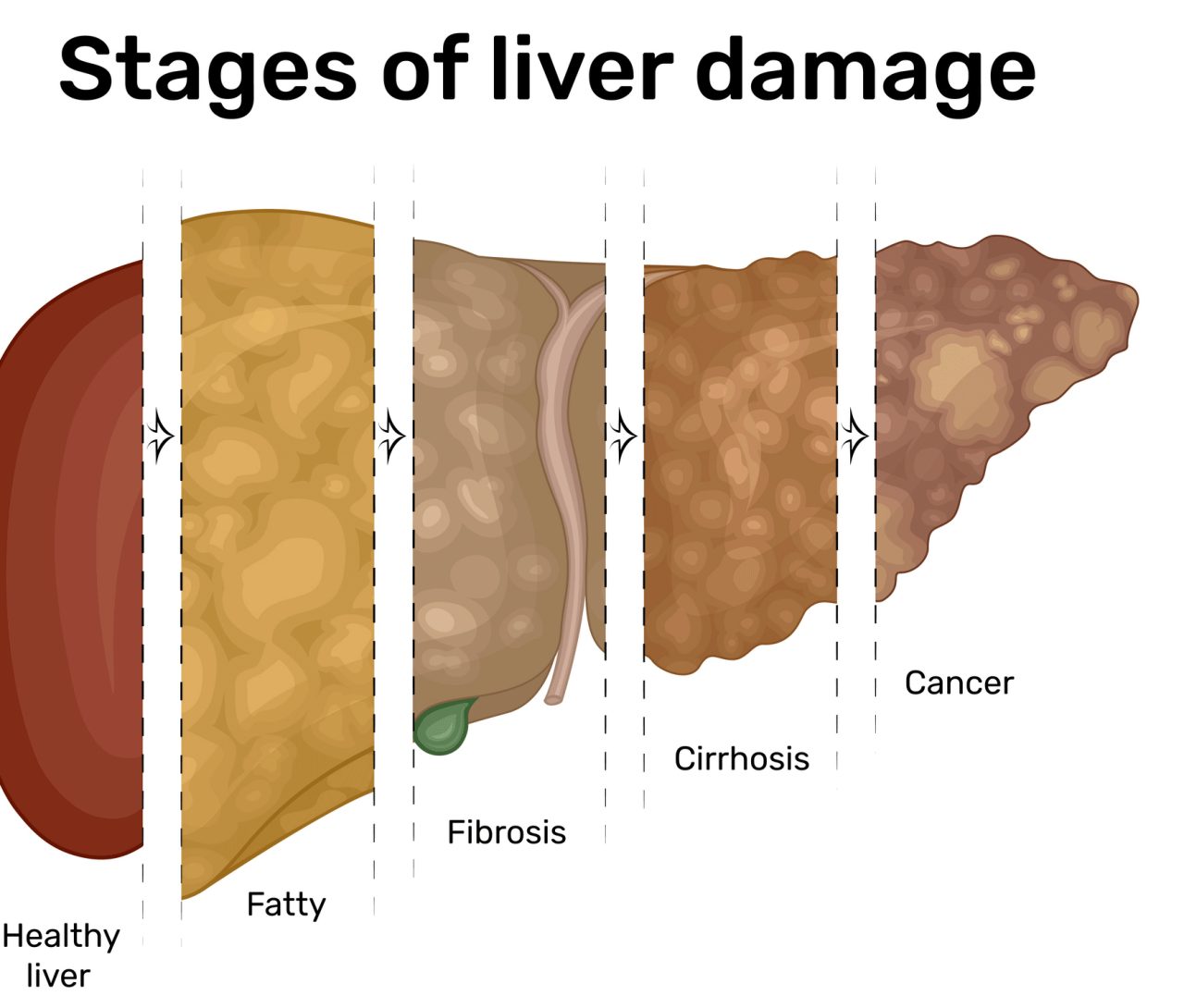Reversing Nonalcoholic Liver Disease

There’s no “magic pill” for curing nonalcoholic liver disease. But research shows halting and even reversing nonalcoholic liver disease is possible.
When the subject of liver disease comes up, you may first think of cirrhosis, the potentially fatal condition often caused by long-term alcohol abuse, or liver failure from hepatitis. Nonalcoholic fatty liver disease (NAFLD) can occur, too.
There’s bad news and good news about NAFLD. On the negative side, it is reaching epidemic proportions in the U.S., and there’s no medication to treat it. On the positive side, research shows halting and even reversing nonalcoholic liver disease is possible with healthy lifestyle changes.
YOU MIGHT ALSO LIKE: Signs of Fatty Liver
There are two types of nonalcoholic liver disease:
- Simple nonalcoholic fatty liver (NAFL) disease, marked by excess fat in your liver but little or no inflammation and damage to cells
- The more serious nonalcoholic steatohepatitis (NASH), which can lead to liver cancer or cirrhosis
NAFLD is one of the most common causes of liver disease in America. About 100 million U.S. adults have the condition, according to the National Institute of Diabetes and Digestive and Kidney Diseases (NIDDK). An increasing number of children and teens also have NAFLD.
Halting or reversing non-alcoholic liver disease is important
Simple nonalcoholic fatty liver disease may have no symptoms and may never progress to the more serious form. Yet it may still shorten your life. Research suggests people with nonalcoholic fatty liver disease have higher mortality rates than people without the condition, according to the American Academy of Family Physicians.
What’s more, over time, if fat accumulates in your liver and NASH develops, symptoms including weakness, jaundice, and chronic itching can occur. NASH can also lead to liver functioning disturbances, fibrosis (scarring), and sometimes life-threatening cirrhosis, a report published in JAMA by University of California liver disease experts explained.
Although there’s no exact cause of NAFLD, the condition has a strong connection with being overweight or obese and having metabolic syndrome — a group of health conditions affecting most people with the condition that includes:
- Excess abdominal fat
- High blood pressure
- Elevated blood sugar levels
- High cholesterol
Having type 2 diabetes, another epidemic in the U.S. linked strongly to lifestyle, is also a risk factor for NAFLD, the NIDDK points out.
Just as a healthy lifestyle (including regular exercise and keeping weight under control with a nutritious diet) can help prevent and treat obesity and metabolic syndrome, those same healthy strategies may help prevent nonalcoholic fatty liver disease. They may also reverse nonalcoholic liver disease.
How to stop nonalcoholic fatty liver disease progression
While there is no medication to cure nonalcoholic fatty liver disease, bariatric surgery may be recommended for people with the condition who are extremely obese. Tor many others, less drastic strategies can help halt progression of NAFLD and even reverse it.
If you start with healthy lifestyle changes early, reversing nonalcoholic fatty liver disease may be most successful, according to Kathleen Corey, MD, director of the Fatty Liver Disease Clinic at Massachusetts General Hospital.
Several studies have shown weight loss, through a healthy diet and regular exercise, is the best prescription for nonalcoholic fatty liver disease. For example, research published in JAMA Internal Medicine found people who lost only three to six percent of their body weight reduced their liver fat levels by 35 to 40 percent. Another study, published in the journal Hepatology, documented how losing about 10 percent of total body weight can result in remission of NASH.
Healthy eating tips from the NIDDK to help treat nonalcoholic fatty liver include:
- Reduce excess calories from saturated and trans fats (found in many processed foods).
- Eat more low-glycemic foods (which don’t cause blood glucose to spike), such as most fruits, vegetables, and whole grains.
- Avoid foods and drinks that contain large amounts of simple sugars, especially fructose (often used to sweeten colas sports drinks and juices).
- Avoid alcohol use, especially in excess, which can contribute to liver damage.
Updated:
January 15, 2024
Reviewed By:
Janet O’Dell, RN